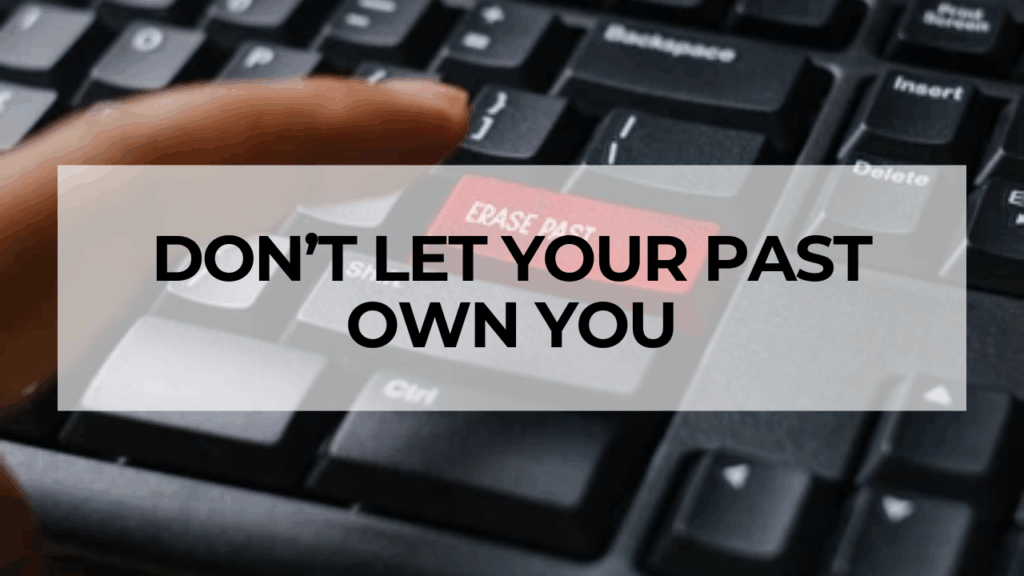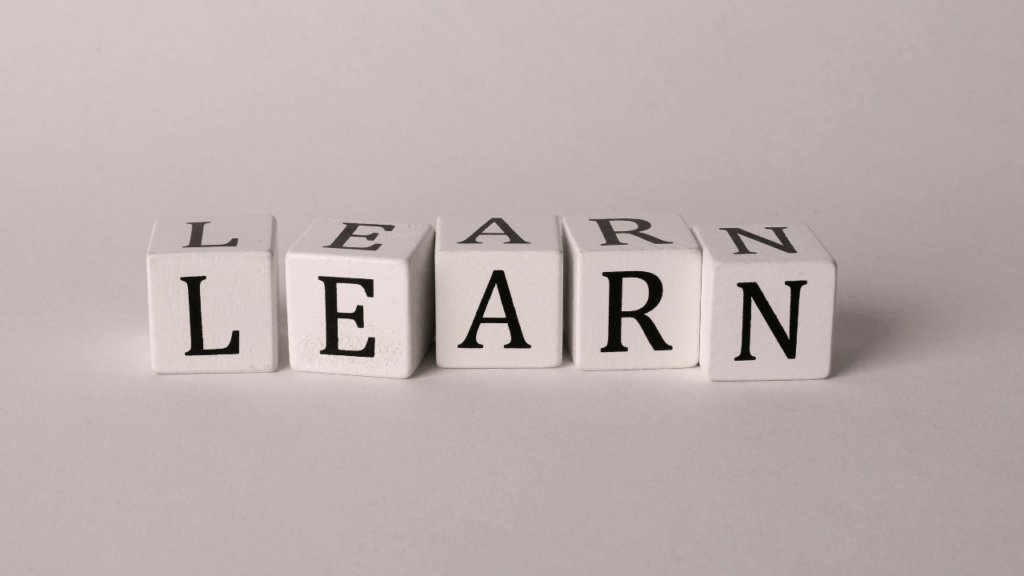Don’t let your Past Own You.
- Rick J Petronella PhD
- Oct, 07, 2025
- Newsletter
- No Comments
Dr. Rick Petronella

Our past experiences play a significant role in shaping who we are today, often carrying echoes of pain, hurt, and mistakes. These moments from the past can deeply influence our present life, touching our emotions, relationships, and how we make decisions. It’s understandable that issues like anxiety, depression, self-doubt, and struggles in building healthy relationships might be linked to unresolved past trauma. As we all navigate the joys and challenges of family life, it’s important to recognize how strongly our past can influence our present—and, ultimately, our children’s future. Many people carry the weight of childhood experiences, mistakes, or trauma, which can affect how they parent and relate to their children.

Let’s explore the implications of being tethered to past pain, highlight insights from the Bible on healing and moving forward, and provide research that underscores the importance of breaking free from the weight of the past.

The Impact of Our Past
Psychological research indicates that unresolved trauma can manifest in various ways in our lives, including anxiety, depression, and struggles within interpersonal relationships. For example, a parent who experienced abandonment in their own childhood may unintentionally project feelings of fear and insecurity onto their children, leading to behaviors such as overprotection or emotional distancing. This cycle reflects the pervasive impact that past experiences can hold over present actions.

Additionally, research published in the *Journal of Family Psychology* suggests that unresolved issues from one’s past can create significant barriers in effective communication and emotional connection within family units. These patterns can perpetuate hurt, leading to generational cycles of dysfunction unless actively addressed.

Biblical Perspective on Moving Beyond Pain
From a biblical standpoint, many verses encourage believers to seek healing and move beyond the scars of their past. In 2 Corinthians 5:17, it is written, “Therefore, if anyone is in Christ, he is a new creation : The old has past away, all things have become new.” This verse illustrates a fundamental principle of Christianity—that transformation can occur, allowing individuals to step away from their past.

Moreover, Philippians 3:13-14 teaches about the importance of forgetting what is behind and pressing toward what is ahead. This perspective emphasizes the belief that the past does not define our worth or future potential. Healing begins when one embraces the grace available through faith and begins the journey of forgiveness, both of oneself and of those who have caused hurt.

Research Supporting the Process of Healing
Research in psychology aligns closely with these biblical principles, suggesting several pathways to healing from past trauma. A study published in the *American Journal of Psychiatry* found that practicing self-compassion can significantly reduce the impacts of past experiences on an individual’s mental well-being. Self-compassion involves treating oneself with kindness and understanding rather than judgment. By cultivating self-compassion, individuals can create a buffer against the negative emotions tied to past mistakes.
Another study conducted by the University of North Carolina found that journaling about past experiences can lead to improved mental health outcomes. It encourages individuals to process their emotions, leading to a deeper understanding and eventual release from their past.

Moving Beyond Mistakes
Let us consider what it means to be free from past mistakes. When individuals heal and move beyond their past, they open doors to personal growth, create space for healthier relationships, and foster resilience in their children. This might look like a parent who, recognizing their tendency to react with anger stemming from a past filled with conflict, actively chooses to respond with patience and empathy. This change not only enhances the parent-child relationship but also models emotional regulation for the child, creating a nurturing environment.

Embracing the notion of “not letting the past own you” allows individuals to reclaim their narratives, fostering a sense of agency over their lives. By focusing on growth and healing, they can inspire their children to do the same, breaking cycles of pain and creating new pathways for emotional well-being.
Transforming Our Lives Through Positive Thoughts

It is important to examine your thoughts and beliefs, positive and negative, and how they influence our feelings and actions. When a thought is negative and pessimistic, it may lead to worrisome and depressive feelings, and careless or poorly planned actions. Negative thoughts include distortions, inaccurate exaggerations, irrelevant thoughts, misperceptions, doubts, deceptions, and lies you tell yourself. Thoughts, feelings, and beliefs often become confused and distorted, especially with substance use and abuse. Confused thoughts and inaccurate beliefs lead to compromised actions. You must change the way you think in order to strengthen your recovery. Understanding the relationship between thoughts, emotions, and behavior is essential to achieving lasting recovery.
Keep your minds thinking about whatever is true, whatever is respected, whatever is right, whatever is pure, whatever can be loved, and whatever is well thought of. If there is anything good and worth giving thanks for, think about these things. Philippians 4:8

Conclusion
In conclusion, acknowledging the impact of our past is crucial for individual growth and healthy parenting. While our past naturally influences us, it doesn’t have to control us. The healing journey, supported by both psychological research and biblical teachings, is one of reclamation and hope. By working through our past hurts and mistakes, we can cultivate an atmosphere of understanding, resilience, and love—creating a better future for ourselves and our children.
Quiz: Questions to Explore Past Influences:
Here are 15 questions designed to help us assess whether they remain heavily influenced by past painful events and how these experiences may impact their present lives. Respondents are encouraged to answer “yes” or “no” to each question, reflecting on their feelings and behaviors. These questions can also aid in understanding how those experiences may be shaping our present lives and emotional well-being.
1. Does revisiting memories of past painful events elicit strong emotions that interfere with your daily life? “yes” or “no”
2. Do you often find yourself comparing your current circumstances to past failures or mistakes?
yes” or “no”
3. When faced with new opportunities, do you hesitate because of fear stemming from previous experiences? “yes” or “no”
4. Are your relationships affected by your past, such as feeling distrustful or cautious due to earlier betrayals? “yes” or “no”
5. Do you often replay negative events in your mind, feeling like you cannot move past them? “yes” or “no”
6. Do you find that you define yourself by past mistakes, rather than focusing on your current strengths and achievements? “yes” or “no”
7. Is it challenging for you to forgive others or yourself for past actions? “yes” or “no”
8. Have you noticed a pattern of self-sabotage when you think you might succeed, often linking it to past failures? “yes” or “no”
9. Do feelings of guilt or regret from past events frequently resurface in your thoughts? “yes” or “no”
10. Is your self-esteem heavily influenced by how you perceive your past experiences? “yes” or “no”
11. Do you frequently overanalyze situations because you fear repeating past mistakes? “yes” or “no”
12. Are you sometimes unable to enjoy the present due to thoughts revolving around what has happened in your past? “yes” or “no”
13. Do you find yourself avoiding certain situations or people reminiscent of negative experiences from your past? “yes” or “no”
14. Have past events shaped your beliefs about what you are capable of achieving today? “yes” or “no”
15. Do you feel that unresolved issues from your past overshadow your ability to fully engage with life in the present? “yes” or “no”
By answering these questions, we can gain valuable insights into how their past might continue to shape our behaviors, beliefs, and emotional well-being today. This awareness is a crucial step in the journey toward healing and moving forward.
These crafted questions encourage a reflective mindset, enabling individuals to examine how their past experiences may still cast a shadow over their current lives. Recognizing these patterns can be the first step toward healing and making empowered choices for a healthier future. It’s essential to approach this exploration with kindness and understanding toward oneself, as the journey of letting go can be both challenging and profoundly rewarding.
Tips for a Smooth & Fun Halloween
Halloween can be a treat for parents too — but when fun turns into a meltdown, the fright feels all too real.
Check costumes early — make sure they fit comfortably, aren’t too itchy, and consider layering soft clothing underneath for sensory-sensitive kids.
Plan for noise — talk through what to expect with doorbells, music, or crowded trick-or-treat spots, and bring noise-canceling headphones if needed.
Prepare for the scary stuff — walk your child through decorations or costumes ahead of time, and remind them it’s all pretend.
